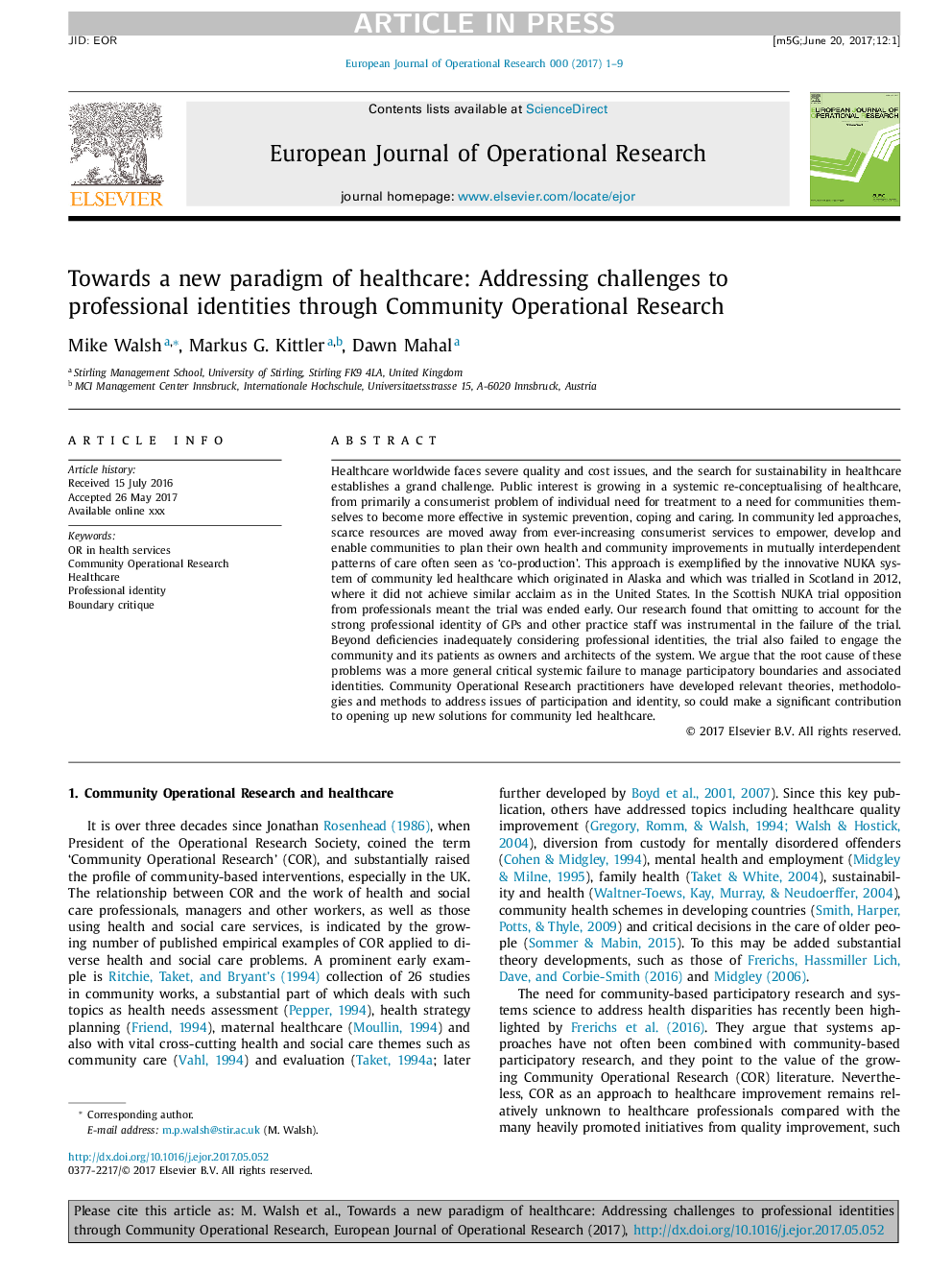| Article ID | Journal | Published Year | Pages | File Type |
|---|---|---|---|---|
| 6894834 | European Journal of Operational Research | 2018 | 9 Pages |
Abstract
Healthcare worldwide faces severe quality and cost issues, and the search for sustainability in healthcare establishes a grand challenge. Public interest is growing in a systemic re-conceptualising of healthcare, from primarily a consumerist problem of individual need for treatment to a need for communities themselves to become more effective in systemic prevention, coping and caring. In community led approaches, scarce resources are moved away from ever-increasing consumerist services to empower, develop and enable communities to plan their own health and community improvements in mutually interdependent patterns of care often seen as 'co-production'. This approach is exemplified by the innovative NUKA system of community led healthcare which originated in Alaska and which was trialled in Scotland in 2012, where it did not achieve similar acclaim as in the United States. In the Scottish NUKA trial opposition from professionals meant the trial was ended early. Our research found that omitting to account for the strong professional identity of GPs and other practice staff was instrumental in the failure of the trial. Beyond deficiencies inadequately considering professional identities, the trial also failed to engage the community and its patients as owners and architects of the system. We argue that the root cause of these problems was a more general critical systemic failure to manage participatory boundaries and associated identities. Community Operational Research practitioners have developed relevant theories, methodologies and methods to address issues of participation and identity, so could make a significant contribution to opening up new solutions for community led healthcare.
Related Topics
Physical Sciences and Engineering
Computer Science
Computer Science (General)
Authors
Mike Walsh, Markus G. Kittler, Dawn Mahal,
